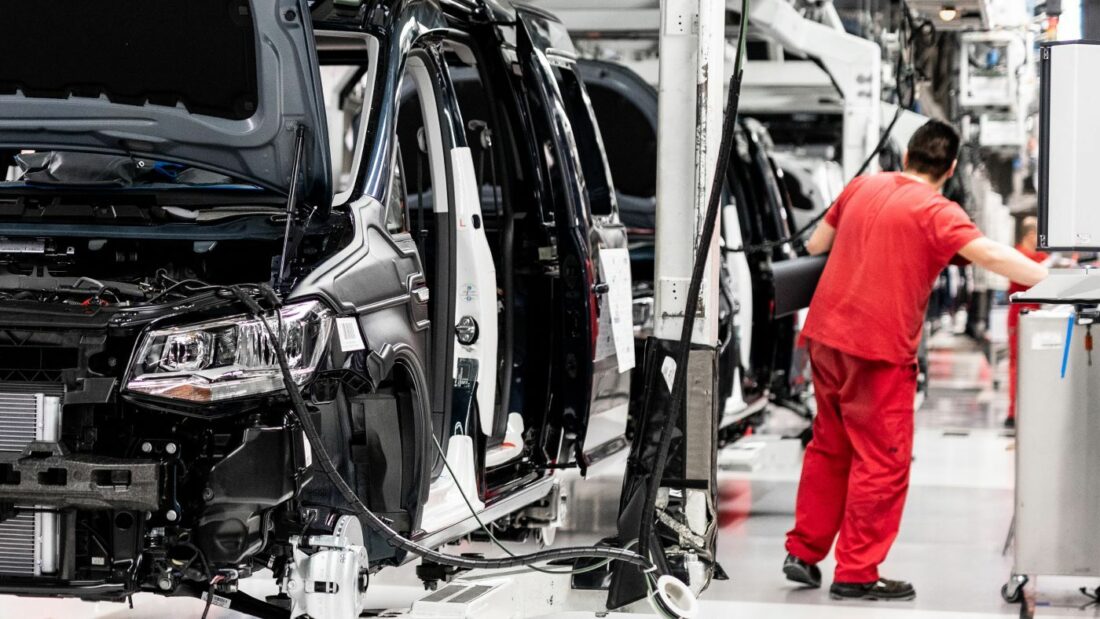Potřeba pragmatického posunu v politice dekarbonizace dopravy
Na mezinárodní automobilové události IAA Mobility se evropští výrobci osobních a dodávkových automobilů sdružení pod hlavičkou Evropského sdružení výrobců automobilů (ACEA) znovu připojili k výzvám k pragmatičtějšímu, flexibilnějšímu a technologicky neutrálnímu politickému přístupu k dekarbonizaci silniční dopravy. Před strategickým dialogem o budoucnosti automobilového průmyslu s předsedkyní Evropské komise Ursulou von der Leyenovou, který je naplánován na 12. září v Bruselu, tito vedoucí představitelé průmyslu zdůraznili naléhavost přizpůsobit stávající emisní předpisy podmínkám reálného světa. Cílem je sladit úsilí o dekarbonizaci s hospodářskou bezpečností, průmyslovou konkurenceschopností a sociální soudržností.
Udržení rovnováhy mezi emisními cíli a životaschopností průmyslu
Generální ředitelka ACEA, Sigrid de Vries, zdůraznila, že dosažení klimatických cílů se nemůže dít na úkor průmyslové konkurenceschopnosti nebo ekonomické stability. Přísná pravidla pro emise CO2 pro osobní a dodávkové automobily musí být přehodnocena s ohledem na současný trh a technologickou realitu. Zdůraznila, že úspěch spočívá ve vytvoření příznivého prostředí zajišťujícího, aby se vozidla s nulovými emisemi stala preferovanou volbou pro jednotlivce i podniky – bez kompromisů.
Současná situace na trhu a výzvy
Automobilový sektor je nepopiratelně na rychlé cestě k transformaci, s mnoha novými modely vozidel, které již byly uvedeny na trh. Nicméně, elektrické osobní automobily drží pouze kolem 15,6 % trhu EU s novými registracemi, což naznačuje propast mezi politickými cíli a přijetím trhem. Pokud jde o elektrické dodávky, je situace ještě naléhavější, s pouhým 8,5% podílem.
To zdůrazňuje potřebu cílených politik a podpůrných opatření šitých na míru různým segmentům vozidel. Zejména jsou zapotřebí oddělené politické pilíře pro osobní automobily, dodávky a těžká vozidla, aby bylo možné efektivně řešit odlišné výzvy a hnací síly v každé kategorii.
Klíčové oblasti vyžadující podporu
- Nabíjecí infrastruktura: Tempo, jakým se elektromobily ujímají, silně závisí na dostupnosti a přístupnosti nabíjecích stanic, a to jak veřejných, tak soukromých.
- Tržní pobídky: Chytré finanční pobídky a regulační stimuly mohou překlenout mezery a podpořit přechod k bezemisním variantám.
- Strategie specifické pro segment: Zohlednění jedinečných požadavků dodávek a těžkých vozidel zajišťuje, že žádný segment nezůstane pozadu.
Průmyslová konkurenceschopnost a globální dodavatelské řetězce
Probíhající ekonomická a komerční situace vykresluje pro automobilový průmysl EU složitý obraz. Značná závislost na asijských výrobcích v oblasti kritických hodnotových řetězců baterií představuje rizika, která se prohlubují v důsledku vyšších cen energií a regulačních nákladů v Evropě ve srovnání s jinými regiony. Tyto faktory mohou oslabit pozici EU na globálním automobilovém trhu.
Pro posílení odolnosti průmyslu a zvýšení konkurenceschopnosti je naléhavá potřeba znovu zavést průmyslové a tržní perspektivy do politik technologických inovací, které podporují transformaci. Zvláštní pozornost si zaslouží podpora výroby malých, účinných elektrických vozidel, která mohou nabídnout významné environmentální výhody a zároveň podpořit domácí průmysl.
| Challenge | Dopad na konkurenceschopnost | Požadovaná akce |
|---|---|---|
| Závislost na asijských dodavatelských řetězcích baterií | Riziko omezení dodávek a zvýšení nákladů | Rozvíjet výrobní kapacity EU pro baterie |
| Vyšší náklady na energie a regulaci | Vyšší výrobní náklady oproti globálním konkurentům | Harmonizujte náklady se strategickými pobídkami |
| Nedostatečné zaměření na malé elektrické vozidla | Promarněné tržní příležitosti a přínosy pro životní prostředí | Podporovat efektivní výrobu elektromobilů v EU |
Výhled před strategickým dialogem
Zástupci evropského automobilového průmyslu se připravují na nadcházející strategický dialog s klíčovými politickými činiteli EU. Rozhodnutí přijatá na tomto fóru významně ovlivní směřování snižování emisí CO2 v silniční dopravě a ovlivní hospodářskou a sociální stabilitu na mnoho let dopředu.
Nedávná výzva představenstva divize užitkových vozidel ACEA zdůraznila nutnost naléhavě zlepšit podmínky umožňující reálně splnit klimatické cíle pro užitková vozidla do roku 2030.
Proč je to důležité pro logistiku a nákladní dopravu
Dekarbonizace silniční dopravy se netýká pouze osobních automobilů; zasahuje hluboko do sektoru logistiky, který se silně spoléhá na dodávky a těžká vozidla pro přepravu nákladu, doručování balíků a přepravu objemných nákladů. Pokrok v zavádění elektrických vozidel pro tyto segmenty přímo ovlivňuje uhlíkovou stopu globálních logistických řetězců.
Zlepšená infrastruktura a tržní pobídky v této oblasti mohou urychlit modernizaci vozového parku, snížit emise a učinit z udržitelné logistiky životaschopný standard namísto výjimky.
Závěrečné myšlenky a dopad na odvětví
Statistická data a odborné recenze sice poskytují zásadní informace, ale nic nepřekoná zkušenost z první ruky, pokud jde o pochopení reality dekarbonizace dopravy. Platformy jako GetTransport.com usnadňují tyto přechody tím, že nabízejí cenově dostupná globální řešení pro přepravu nákladu, která se přizpůsobí široké škále logistických potřeb – od stěhování kanceláří a domácností až po manipulaci s objemným zbožím a přepravu vozidel.
GetTransport.com vyniká svou transparentností a pohodlím, umožňuje uživatelům informovaná rozhodnutí za konkurenceschopné ceny bez obětování spolehlivosti. Ať už se jedná o přesun palet, kontejnerů nebo o vyřizování mezinárodních nákladních zásilek, rozsáhlá síť platformy hladce uspokojuje vyvíjející se požadavky na dopravu.
Rezervujte si jízdu nyní na GetTransport.com zažít, jak snadná a efektivní může být moderní logistika.
Shrnutí: Orientace v dekarbonizaci dopravy v evropském automobilovém sektoru
Neustálá výzva k flexibilnější, pragmatičtější a technologicky neutrální dopravní politice v EU poukazuje na složitou rovnováhu mezi environmentálními cíli, průmyslovou konkurenceschopností a ekonomickou stabilitou. Zavádění osobních a užitkových elektrických vozidel naráží na překážky spojené s mezerami v infrastruktuře a realitou trhu. Závislost na externích dodavatelských řetězcích a zvýšené náklady ohrožují globální pozici Evropy, což signalizuje potřebu strategické podpory v oblasti technologií a výroby.
Pro logistiku a nákladní dopravu budou mít výsledky těchto politik široký dopad, ovlivňující způsob, jakým je zboží odesíláno, expedováno a přesouváno přes hranice stále udržitelnějším způsobem. Platformy jako GetTransport.com se dokonale shodují s těmito vyvíjejícími se trendy tím, že poskytují spolehlivé, cenově dostupné a mezinárodní přepravní služby, které uspokojí rozmanité potřeby moderní nákladní logistiky.

 Evropský automobilový průmysl vyzývá k pragmatické změně politiky za účelem posílení odlišování silniční dopravy na IAA Mobility">
Evropský automobilový průmysl vyzývá k pragmatické změně politiky za účelem posílení odlišování silniční dopravy na IAA Mobility">